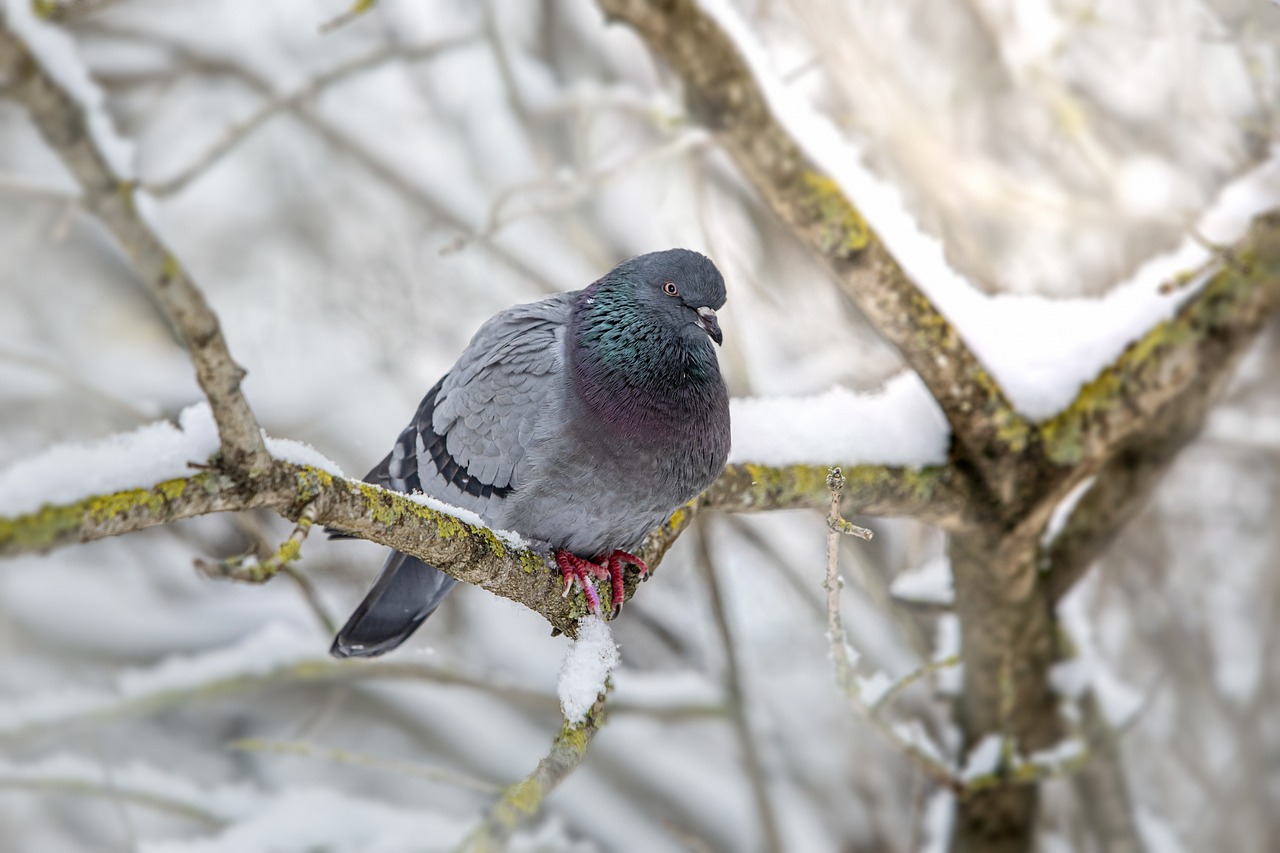The domestic pigeon (Columba livia domestica) is a subspecies of the wild rock pigeon, native to Europe, North Africa, and southwestern Asia. Domestic pigeons have been bred for various purposes for thousands of years, including as pets, for racing, and for their meat. They are one of the oldest domesticated bird species, with evidence of their domestication dating back over 5,000 years.
Here are some key points about domestic pigeons:
- Physical Characteristics: Domestic pigeons vary widely in color and pattern due to selective breeding. They typically have stout bodies, short necks, and small heads. Their plumage can be white, black, gray, or various combinations of these colors.
- Behavior: Pigeons are social birds that often form large flocks, especially in urban areas where they are commonly found. They are known for their homing instinct, which has been utilized for centuries in pigeon racing and messenger pigeon activities.
- Breeding and Reproduction: Pigeons are monogamous and often mate for life. They build simple nests out of twigs, grass, and other materials, typically in sheltered locations such as ledges or rooftops. Pigeon pairs usually lay two eggs per clutch, and both parents share the responsibility of incubating the eggs and raising the chicks.
- Uses: Domestic pigeons have been bred for various purposes. Some are kept as pets due to their gentle nature and ease of care. Racing pigeons are bred and trained for competitive pigeon racing events, where they navigate long distances back to their home loft. Pigeon meat, though less common in Western countries, is consumed in some parts of the world.
- Pigeon Racing: Pigeon racing is a sport where specially bred racing pigeons compete to return to their home loft from a distant location. The birds are trained extensively and are released from progressively longer distances. Their speed and navigational abilities make pigeon racing a popular sport in many countries.
- Symbolism and Cultural Significance: Pigeons have symbolic significance in various cultures and religions. They are often associated with peace, love, and freedom, and are commonly depicted in art and literature. In some cultures, releasing pigeons at weddings or other ceremonies is considered auspicious.
Overall, domestic pigeons are fascinating creatures with a rich history of interaction with humans, serving various purposes ranging from companionship to sports and even wartime communication.
Visited 1,018 times, 20 visit(s) today
Views: 1408
Subscribe to the newsletter:
